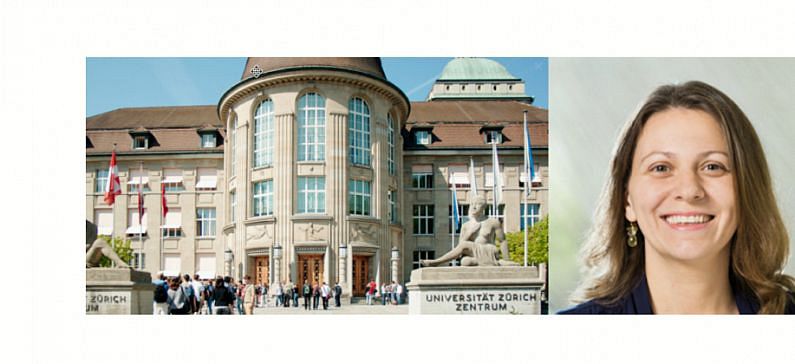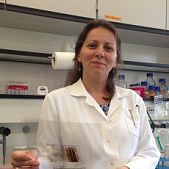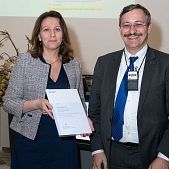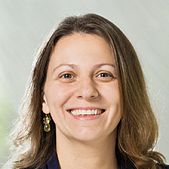
International distinction for Greek researcher
EMBO announced the selection of 28 young researchers as EMBO Young Investigators. The 28 researchers, among them a Greek researcher, will join a network of 47 current and 417 past Young Investigators who represent some of the best up-and-coming group leaders in the life sciences in Europe and beyond.
The only Greek recipient is Magdalini Polymenidou, an Assistant Professor at the Institute for Molecular Life Sciences, with a double appointment between the Faculty of Science and the Medical Faculty of the University of Zurich.
“It is a pleasure to welcome these outstanding scientists to the EMBO community,” says EMBO Director Maria Leptin. “Between them, they carry out some of the most promising life science research that Europe has to offer, and we look forward to supporting them in their professional and scientific undertakings.”
The new Young Investigators are based in 11 different countries, including two European Molecular Biology Conference (EMBC) Associate Member States, India and Singapore. Selection to the EMBO Young Investigator Programme is recognition of exceptional research and scientific potential. Through the programme, EMBO identifies and supports some of the best researchers under 40 years of age who are in the process of establishing their own laboratory. During their three-year tenure, EMBO Young Investigators receive a range of benefits, including an award of 15,000 euros and possible additional funds to support the establishment of their first independent laboratories. Laboratory management and non-scientific skills training as well as PhD courses offer the young group leaders and their students the chance to develop professional skills. The scientists also receive access to core facilities at the European Molecular Biology Laboratory in Heidelberg, Germany, and funding for themselves and their group members to attend conferences.
Magdalini Polymenidou is an Assistant Professor at the Institute for Molecular Life Sciences, with a double appointment between the Faculty of Science and the Medical Faculty of the University of Zurich. Her lab is investigating the molecular pathways triggering neurodegeneration in amyotrophic lateral sclerosis (ALS) and frontotemporal dementia (FTD), with focus on the interplay between protein aggregation and RNA misregulation, characterizing both diseases. Originally trained as a pharmacist in Aristotle University of Thessaloniki (Greece), she received her PhD in 2006 on prion diseases in the laboratory of Adriano Aguzzi at the University Hospital of Zurich (Switzerland). In 2008, she joined the group of Don Cleveland at the University of California in San Diego (USA) as a postdoctoral fellow, where she used genome-wide approaches to decipher the function of RNA-binding proteins associated with ALS and FTD. Among other honors, she has received the Swiss National Science Foundation Professorship, the K99 Pathway to Independence Award from the National Institutes of Health, the Career Development Award from the Human Frontier Science Program and the Georg-Friedrich Götz Prize from the University of Zurich. Magdalini is actively working for gender equality in academia and is currently the coordinator of the Gender Equality Committee of the Neuroscience Center Zurich.










